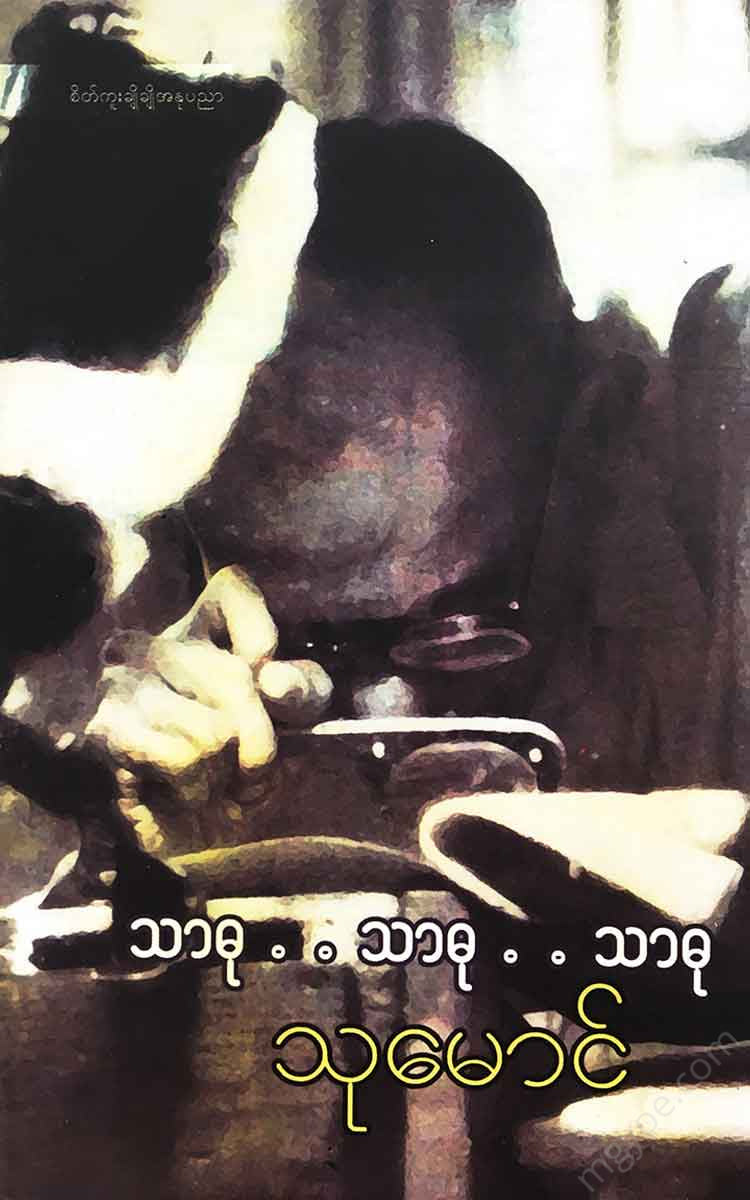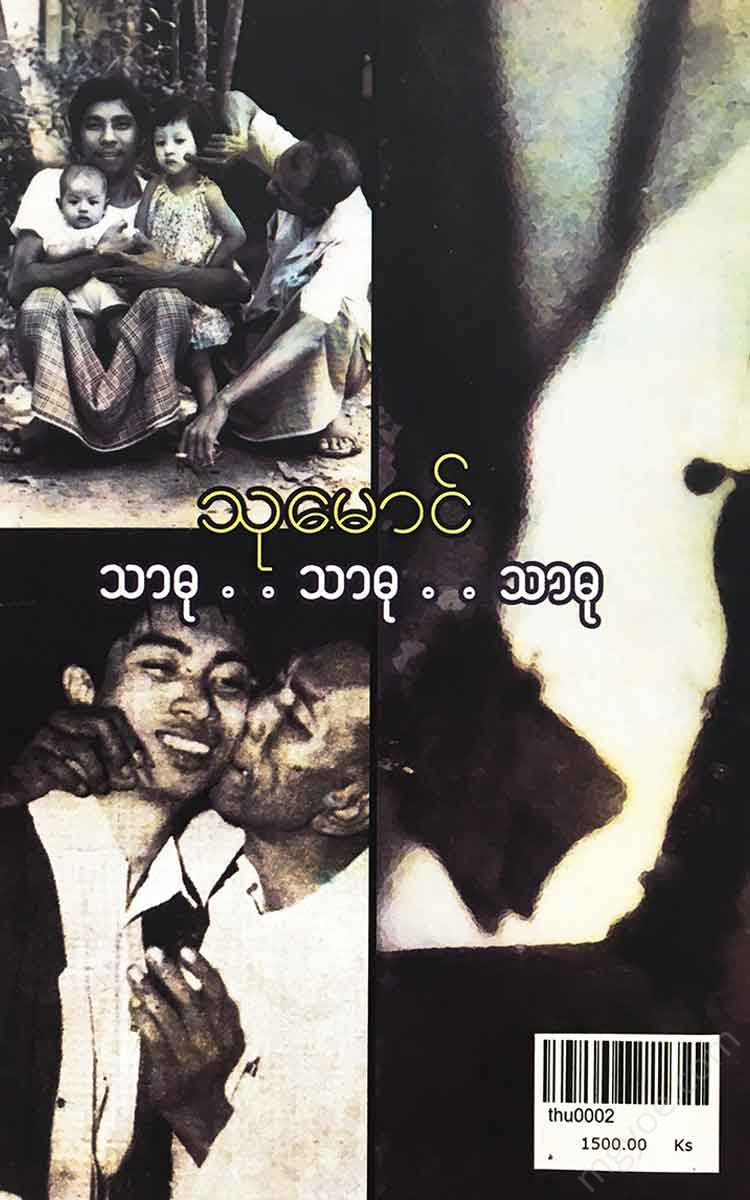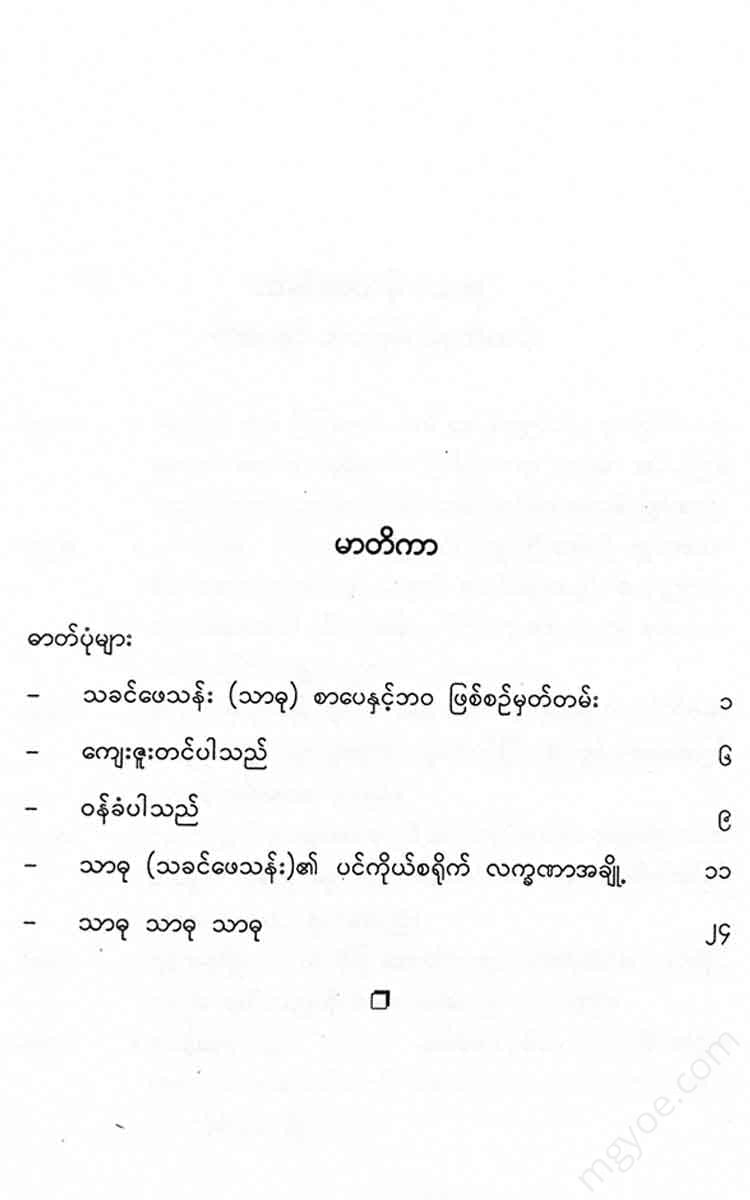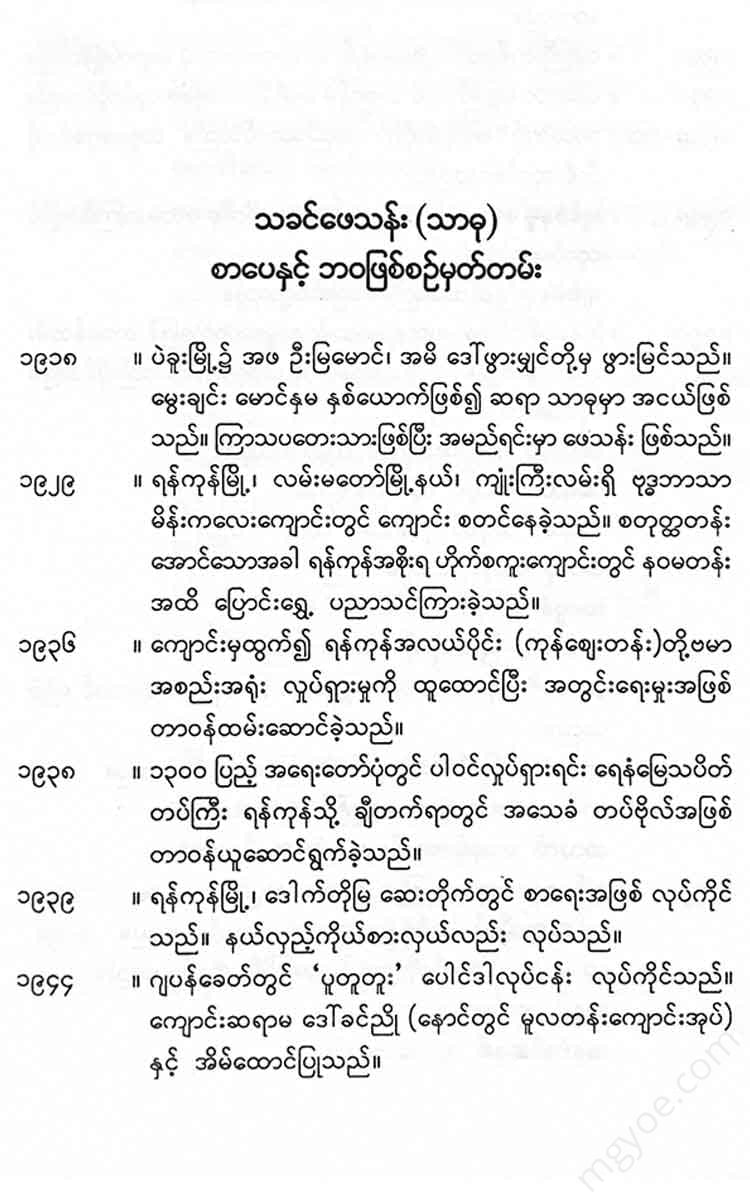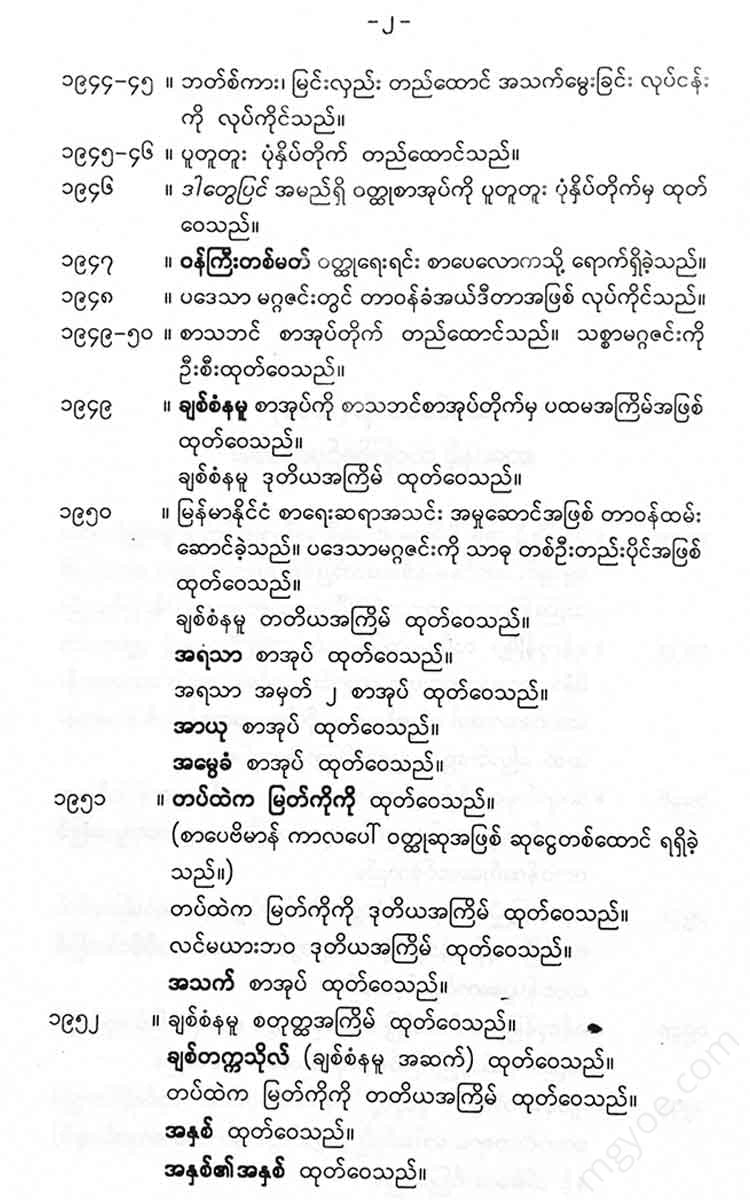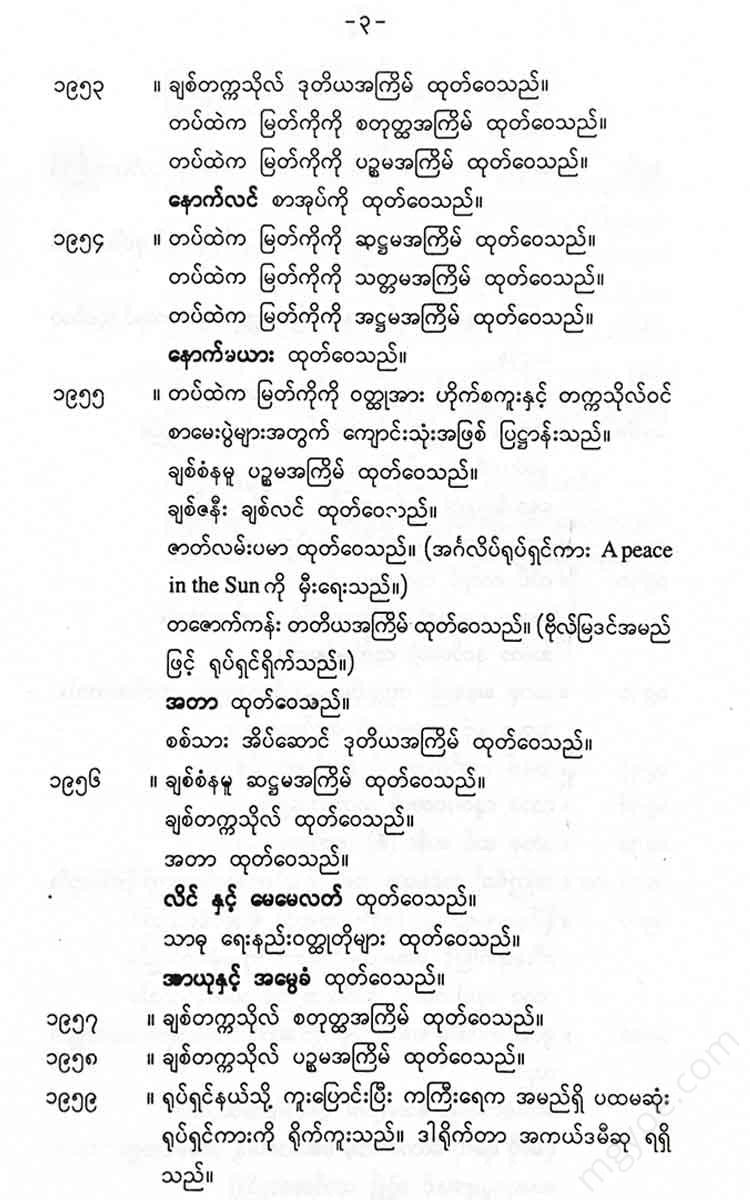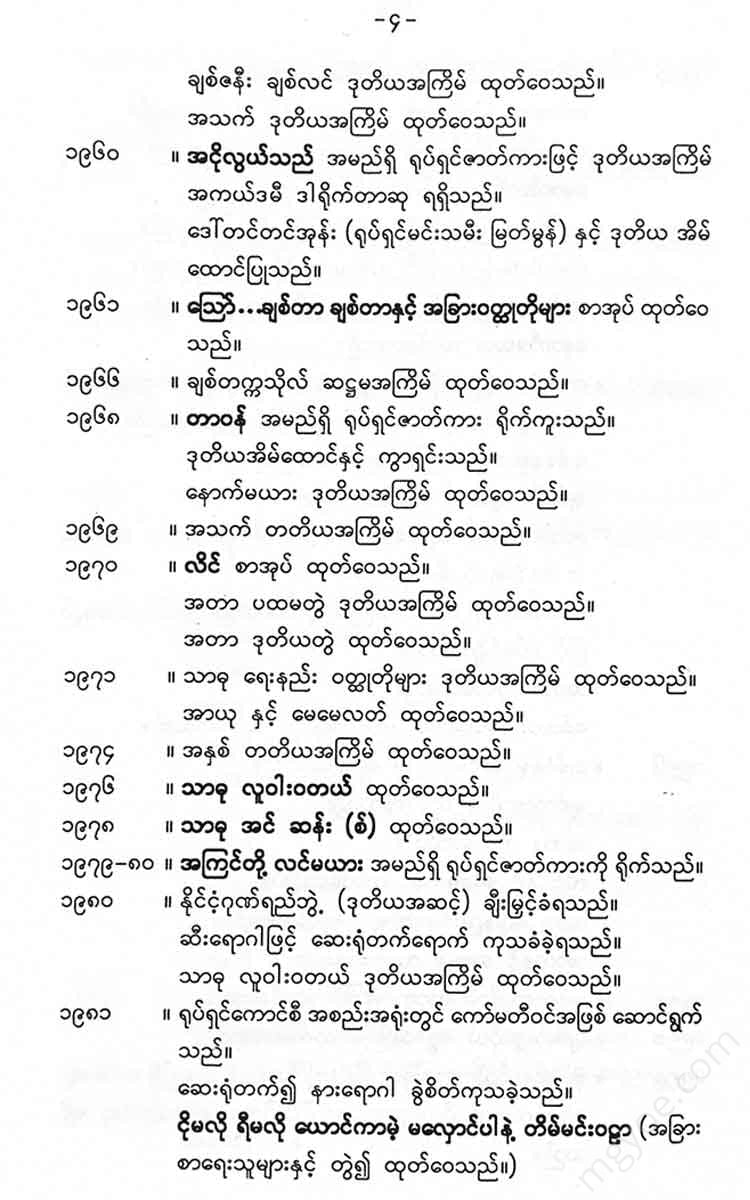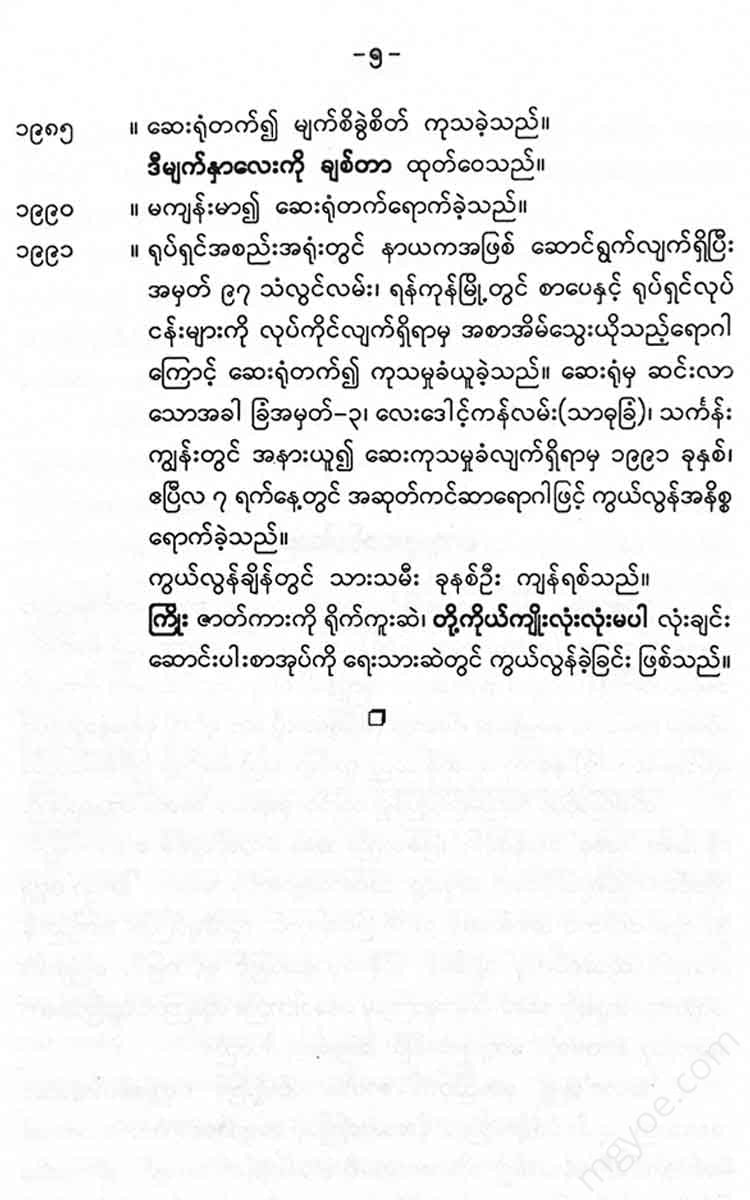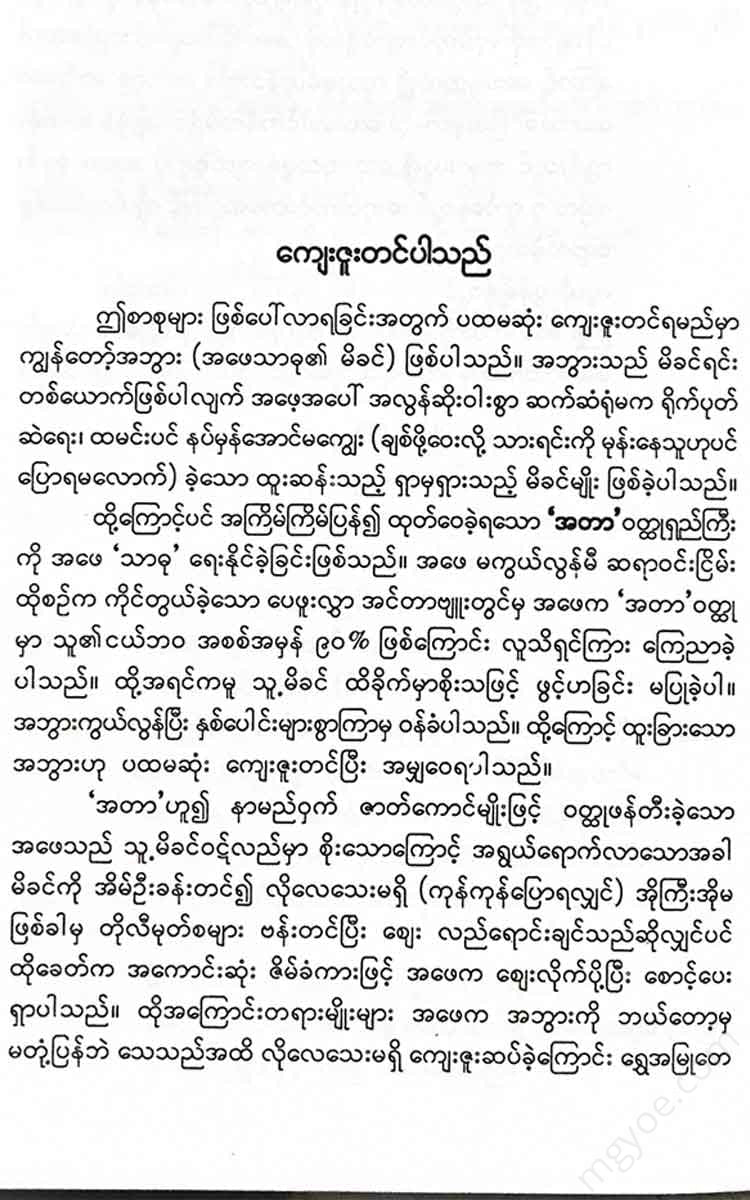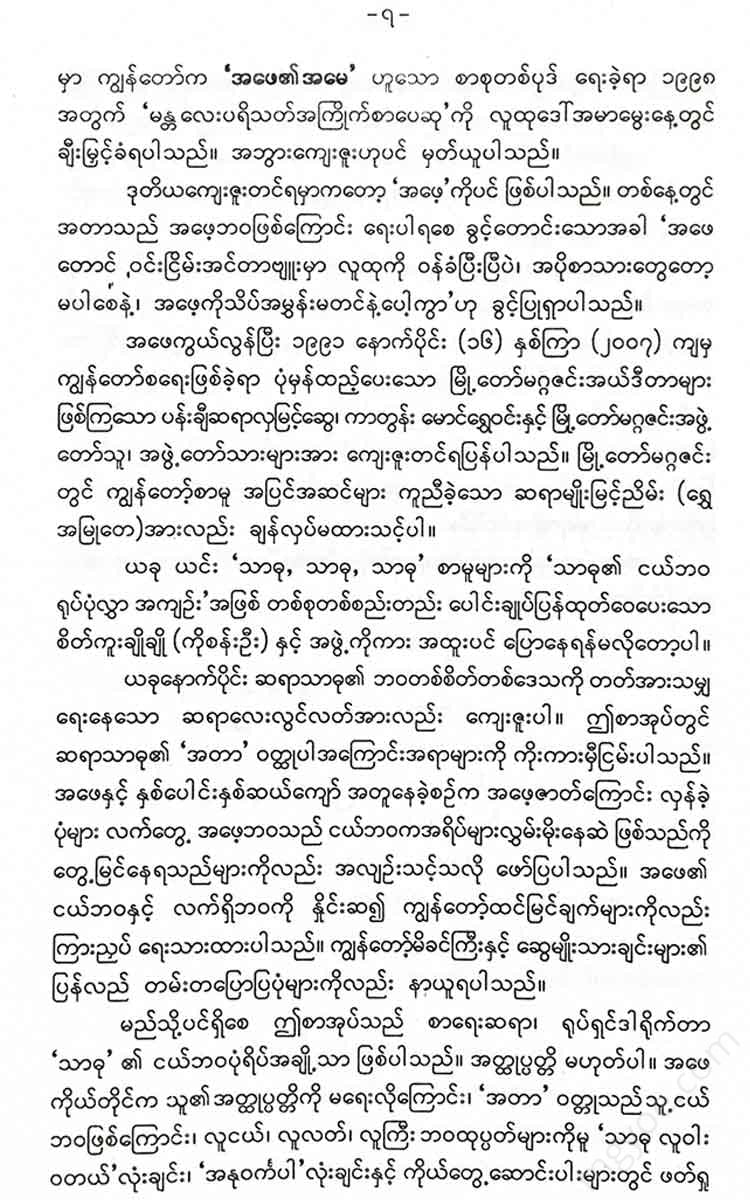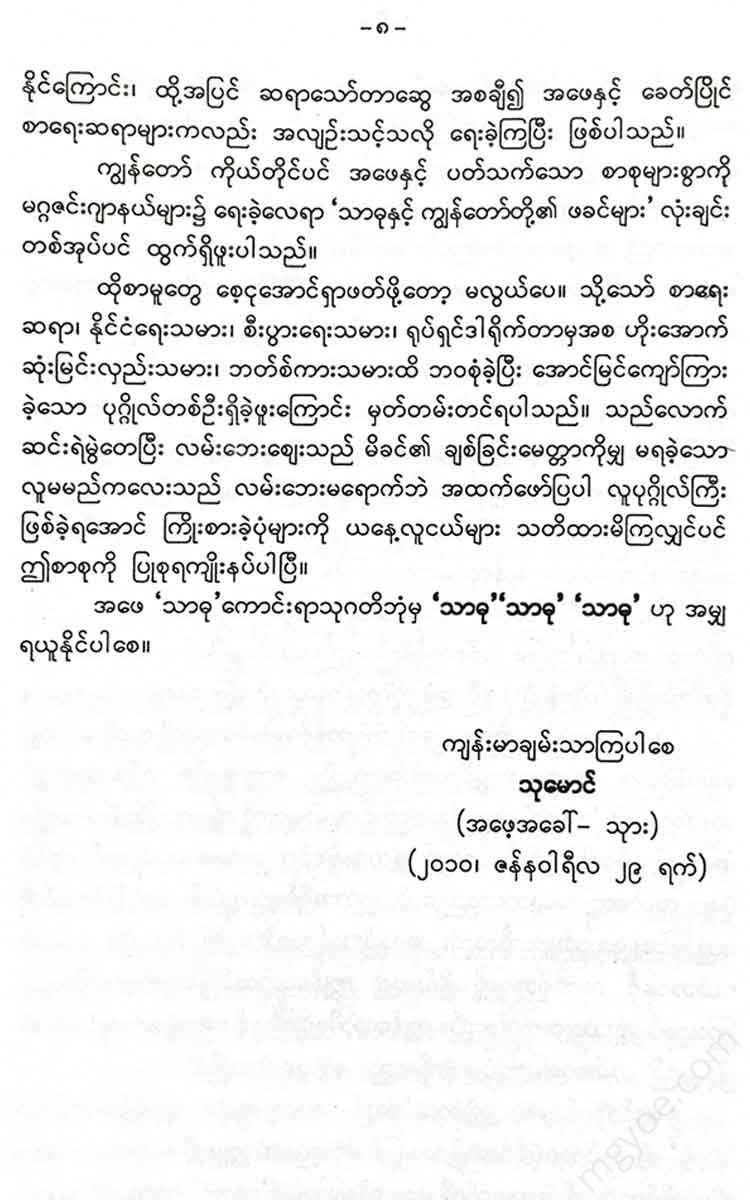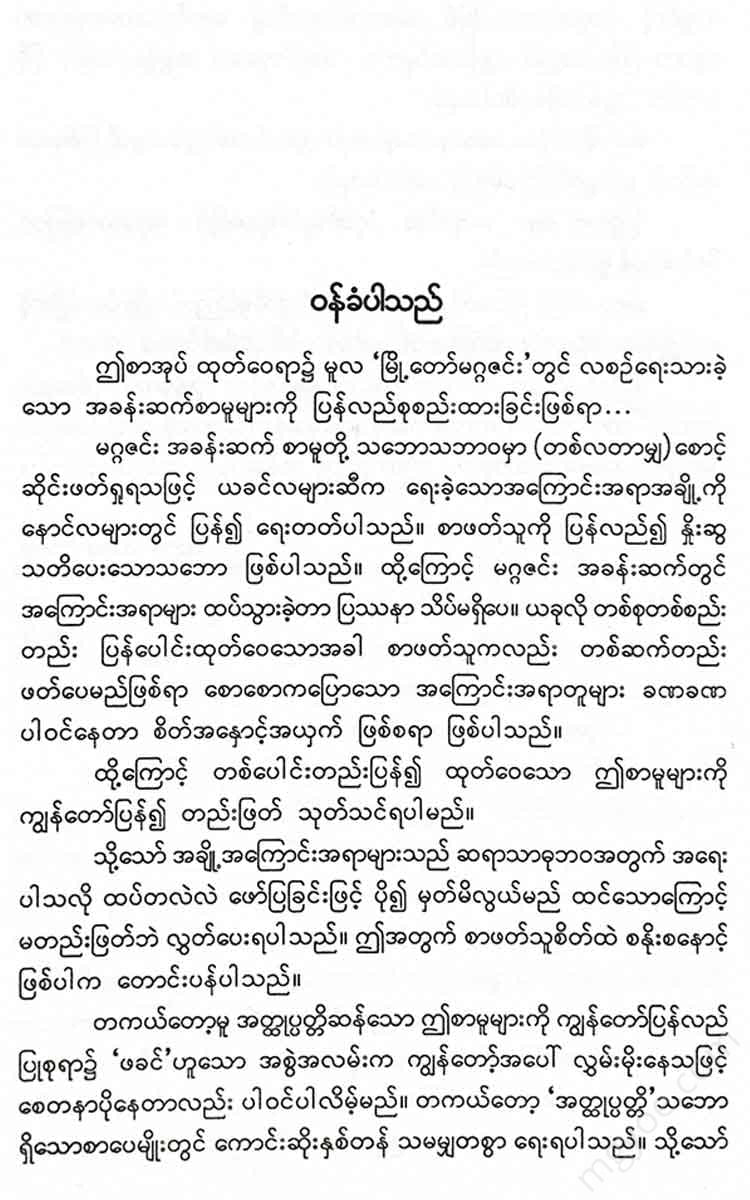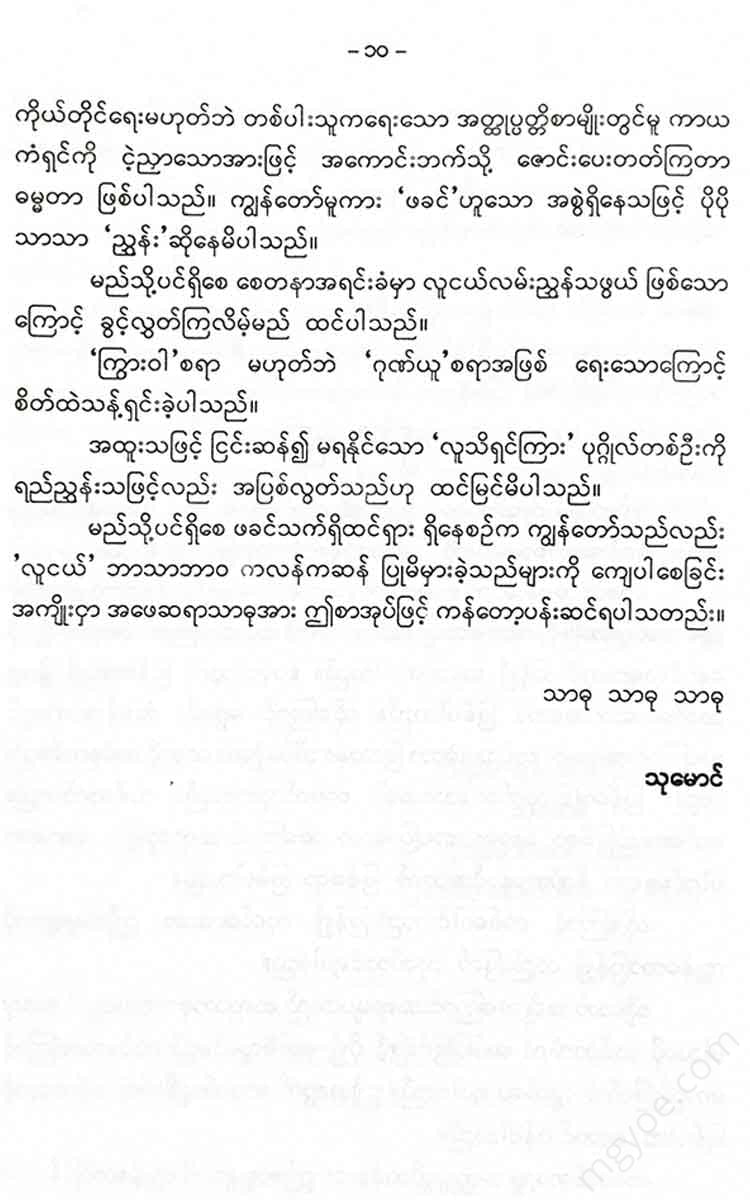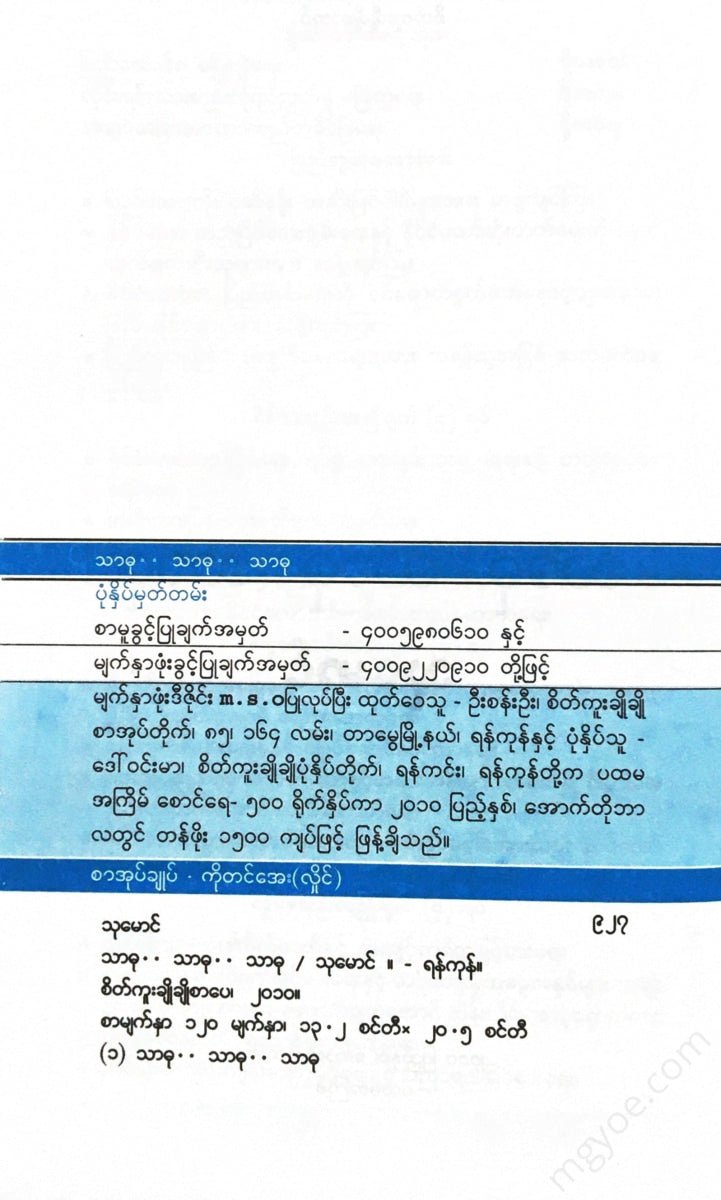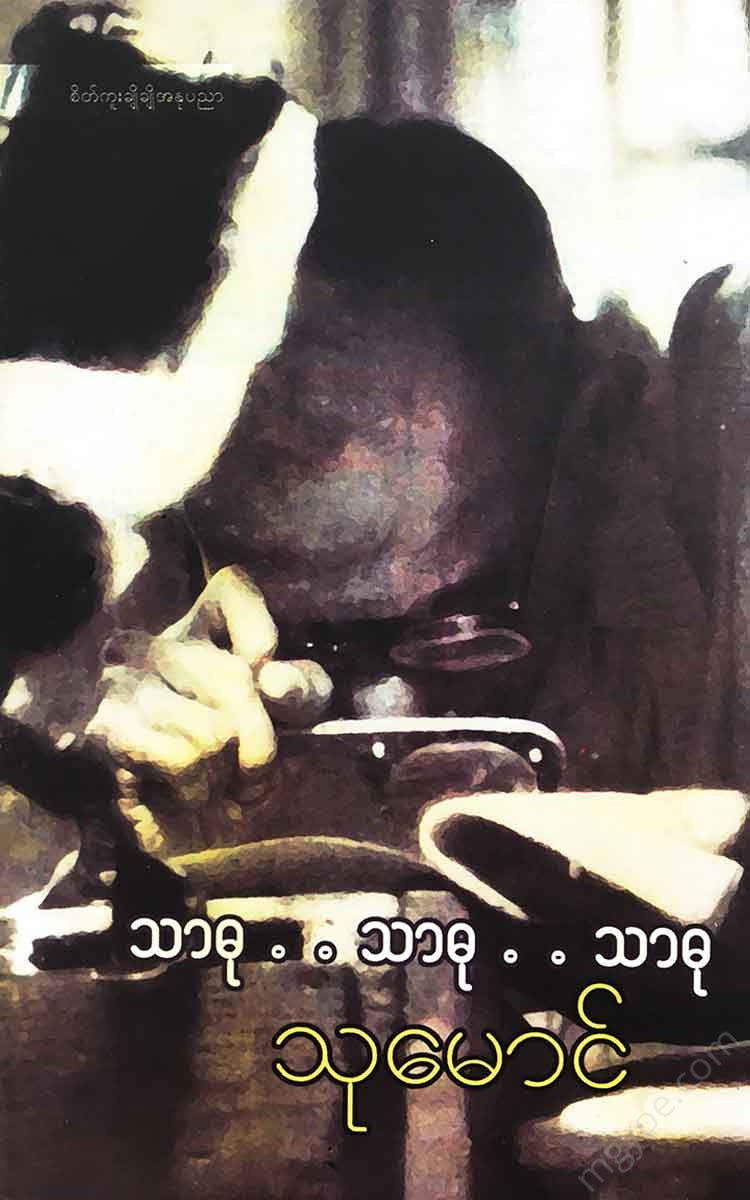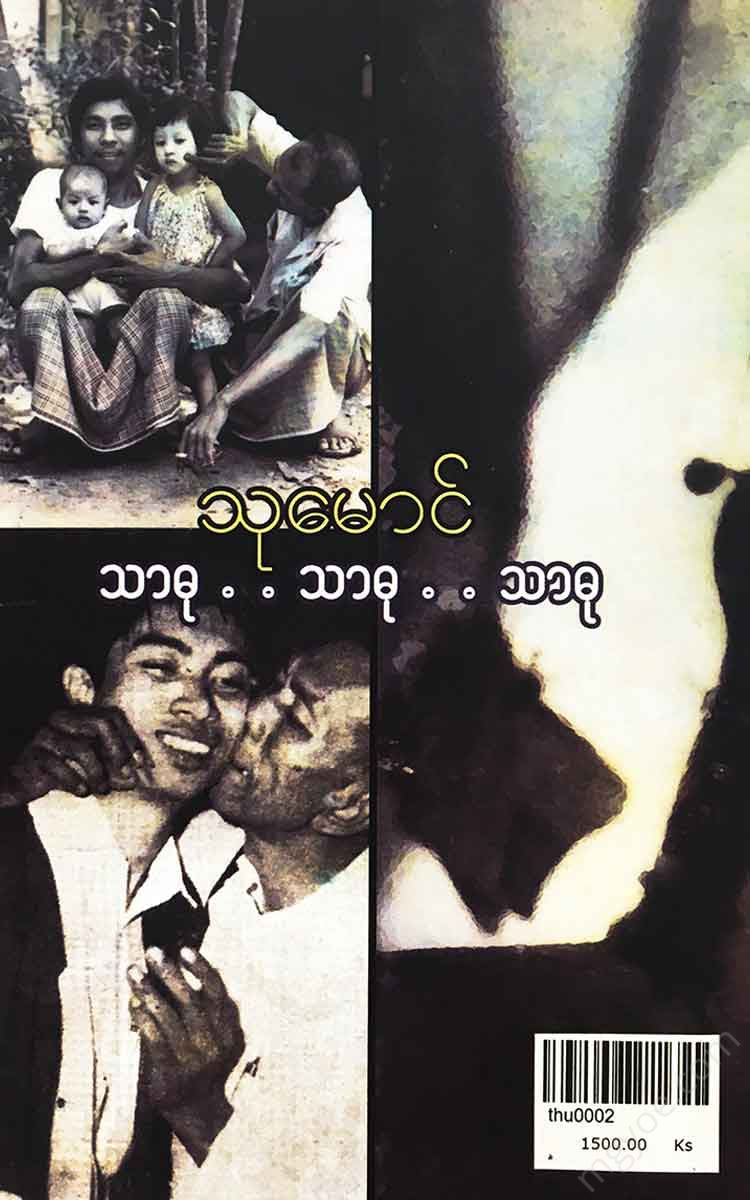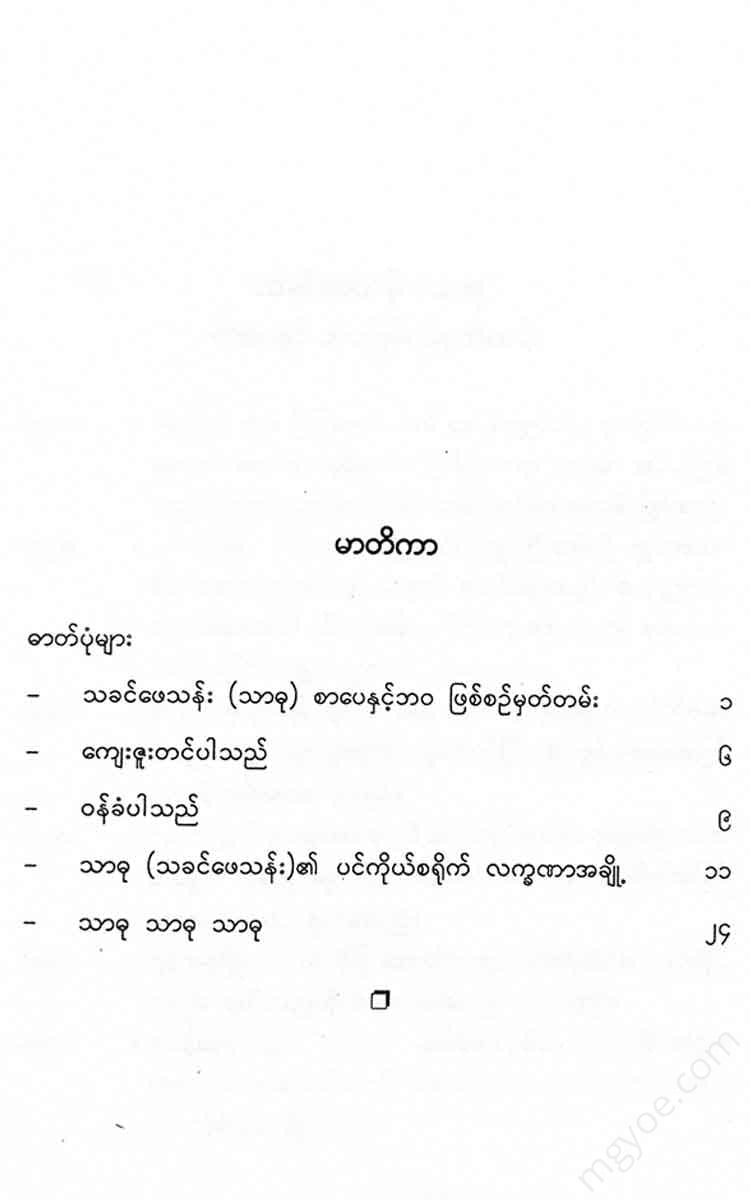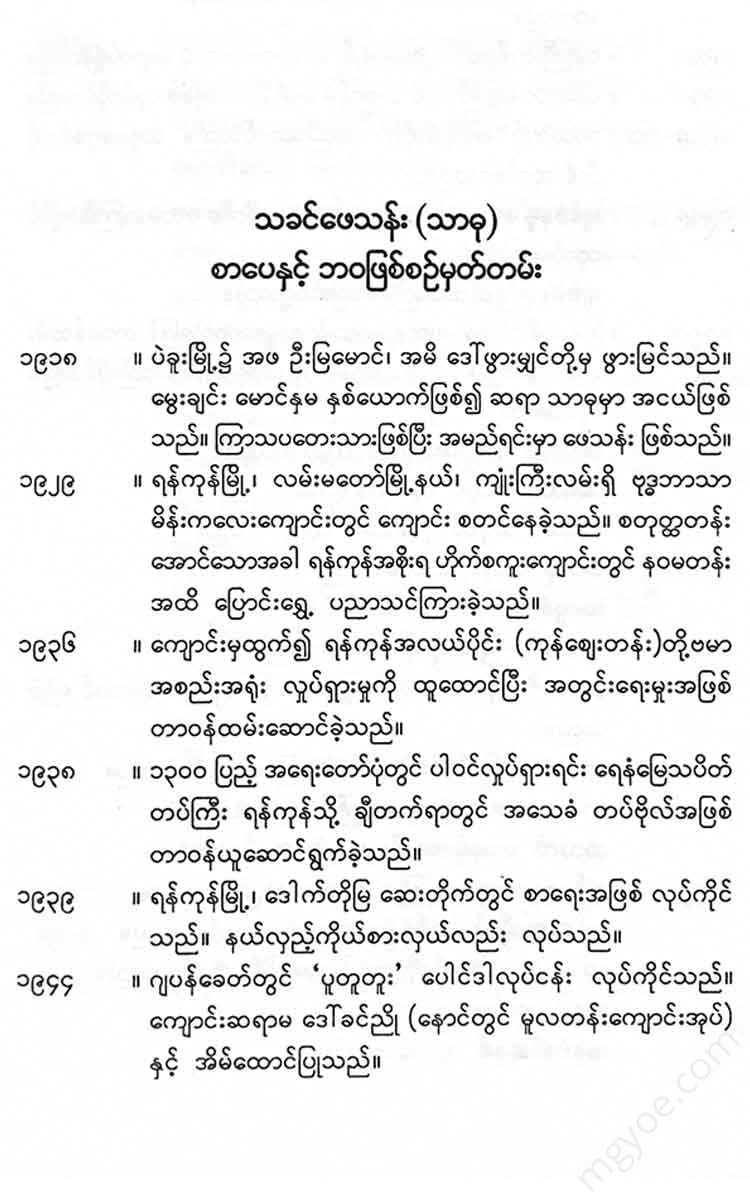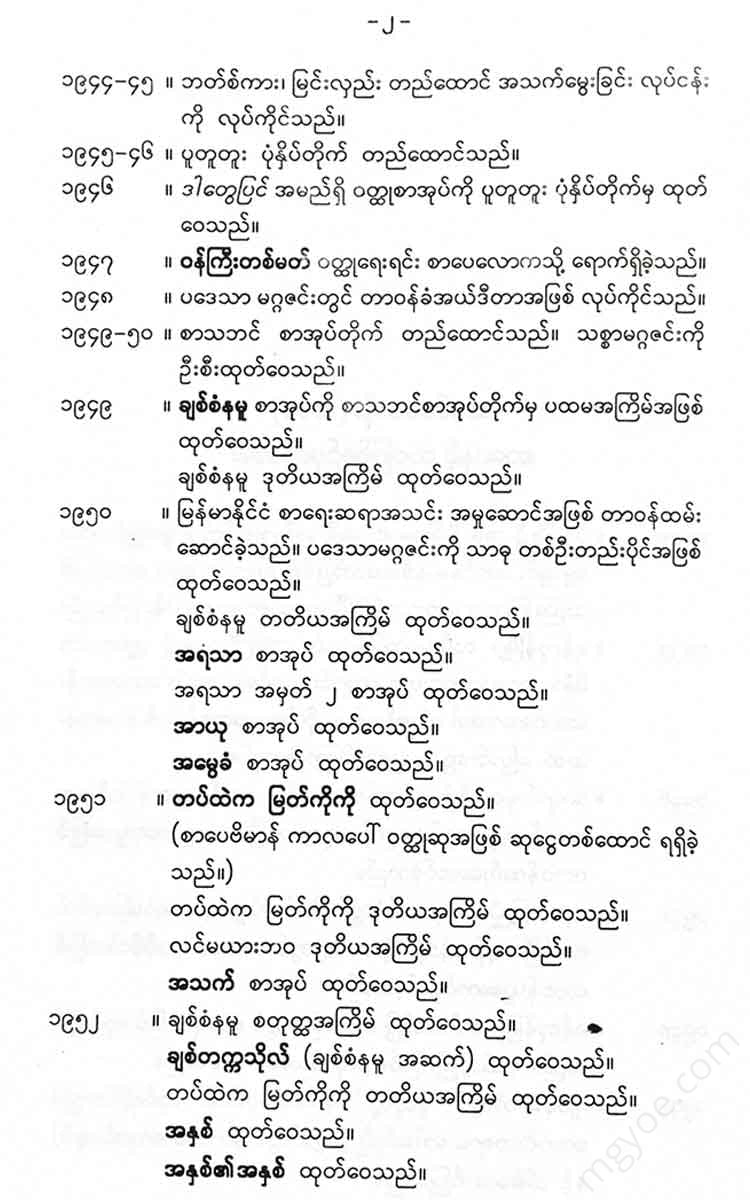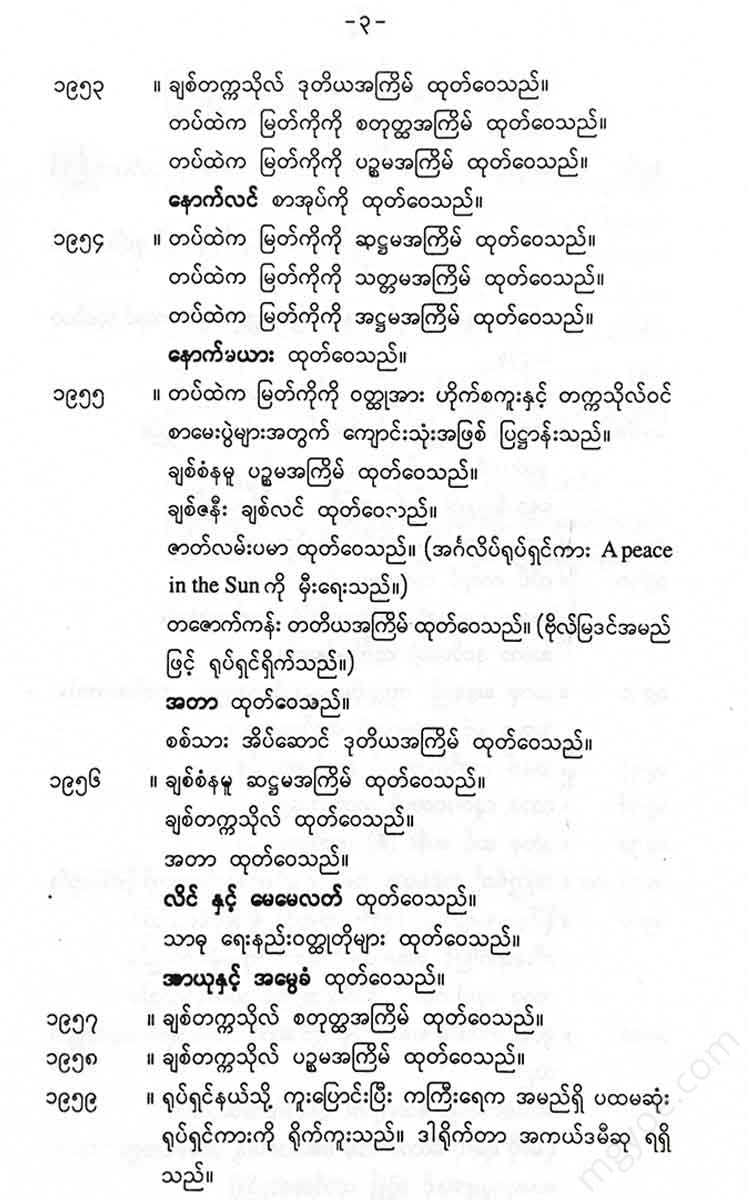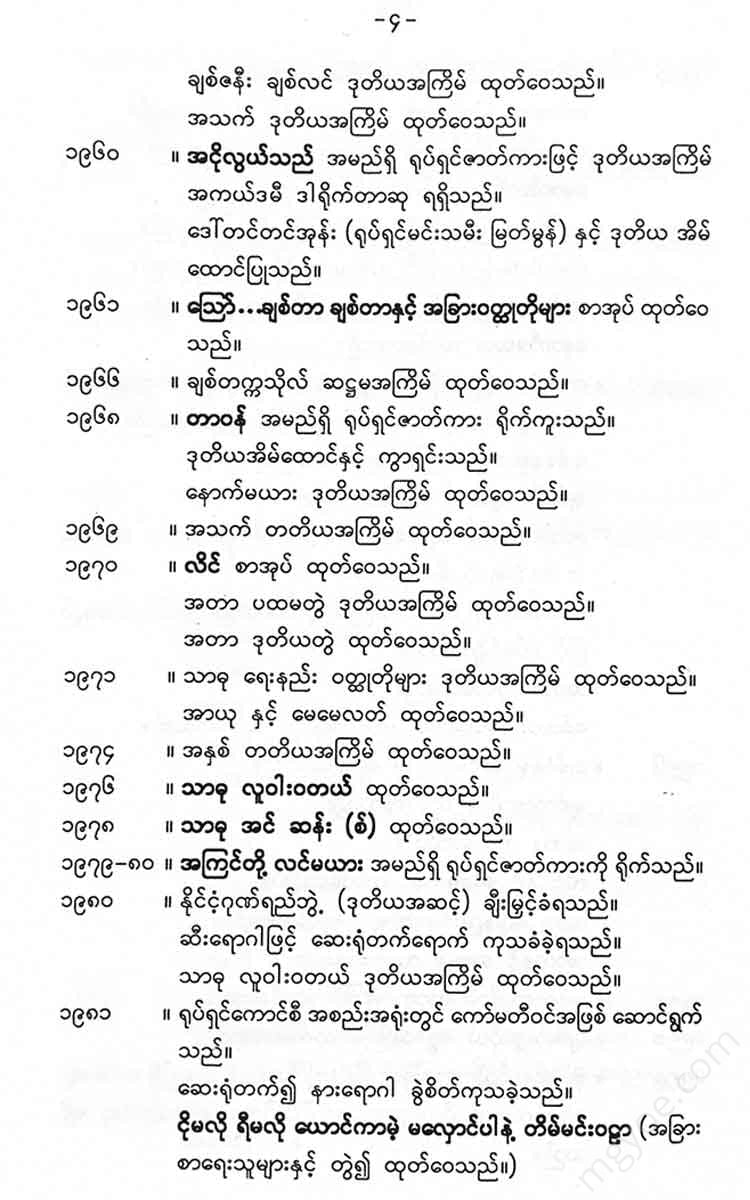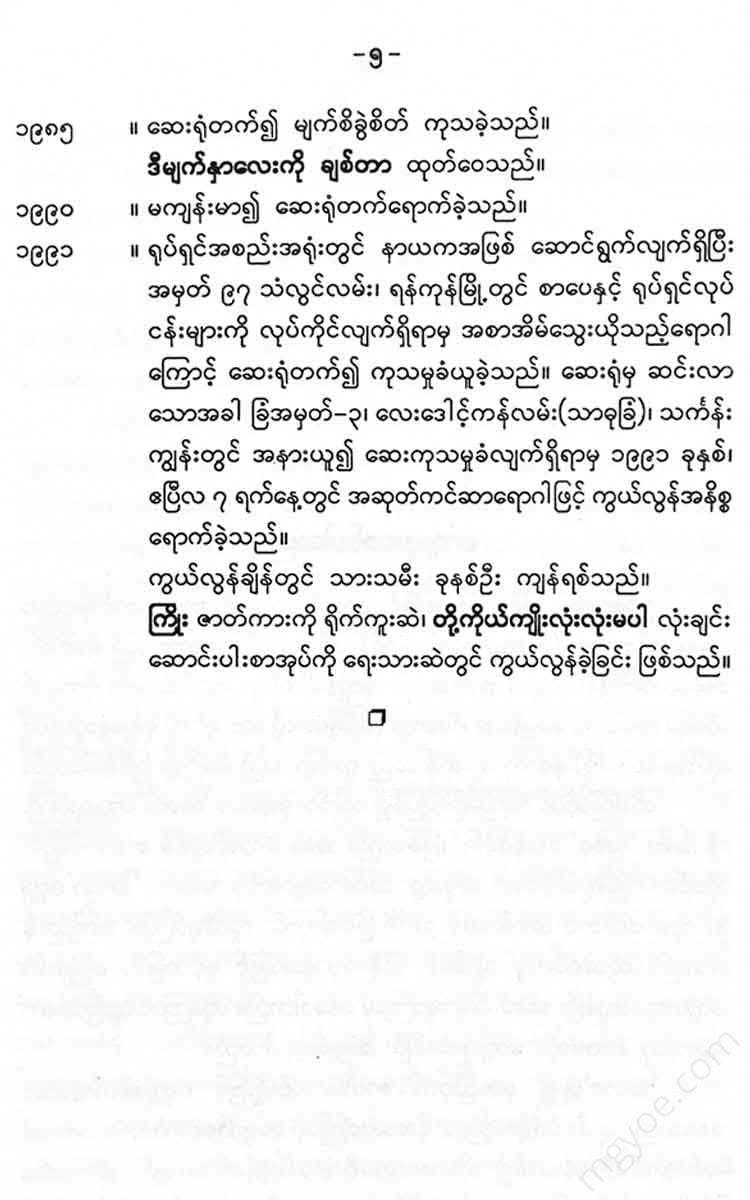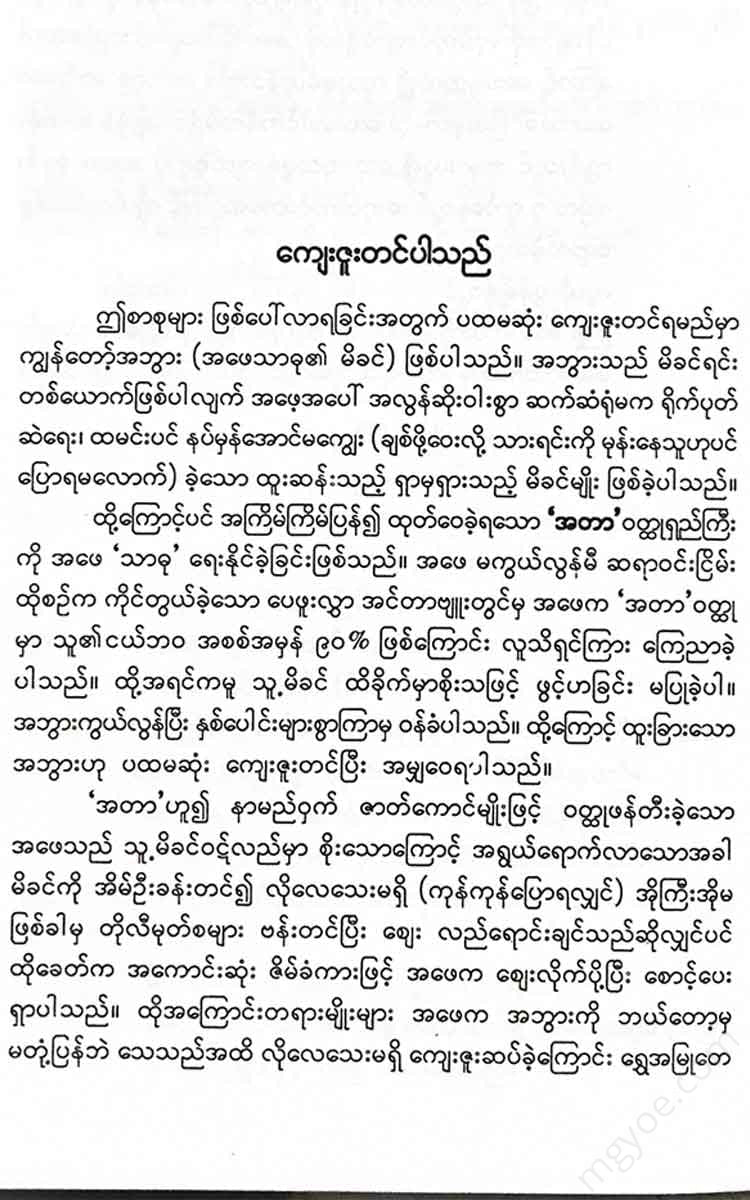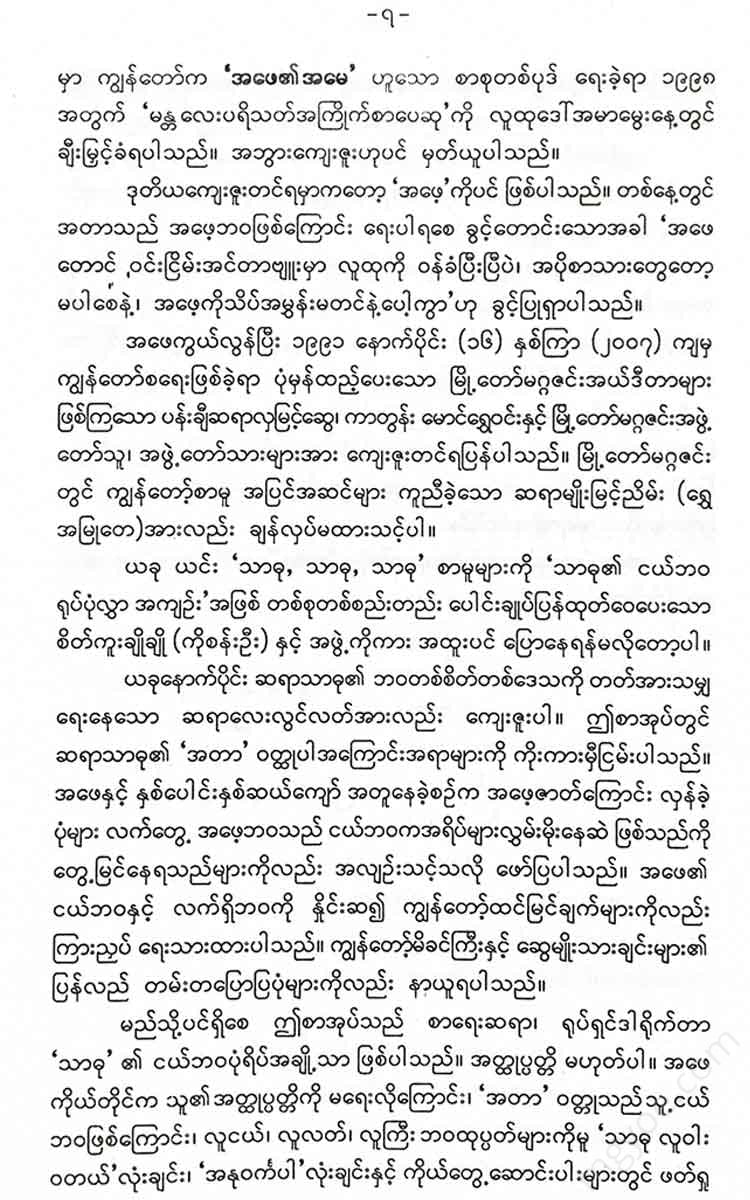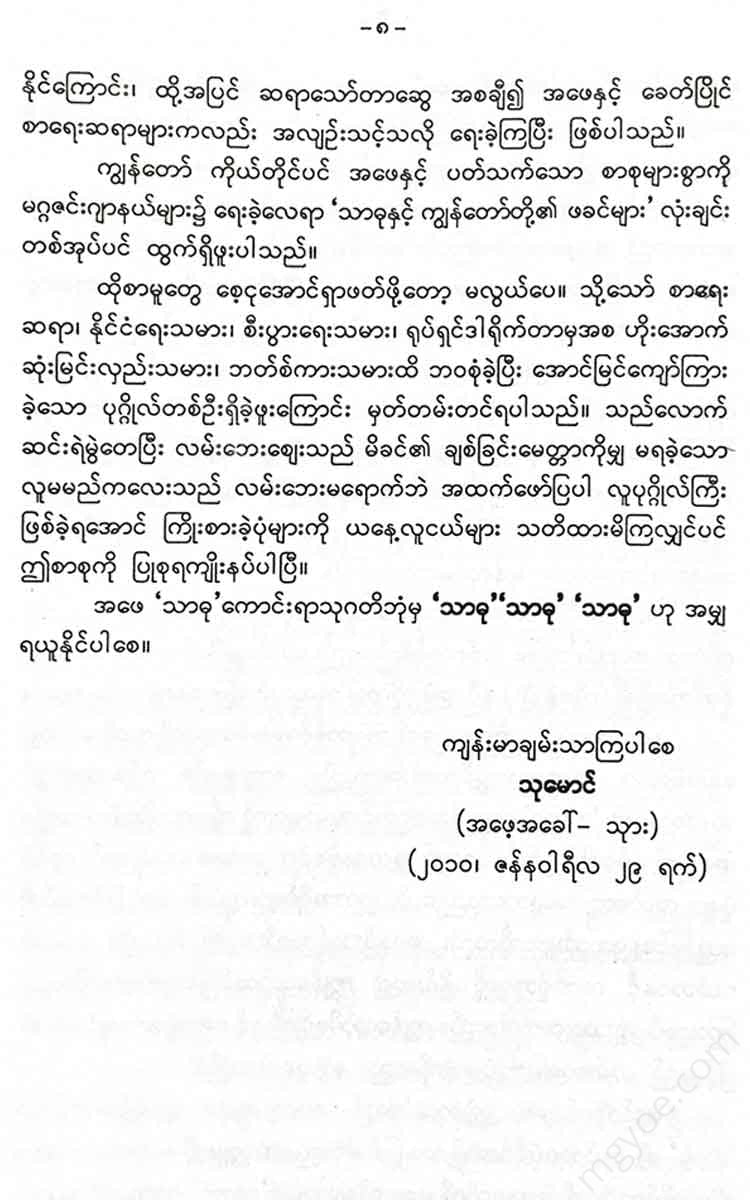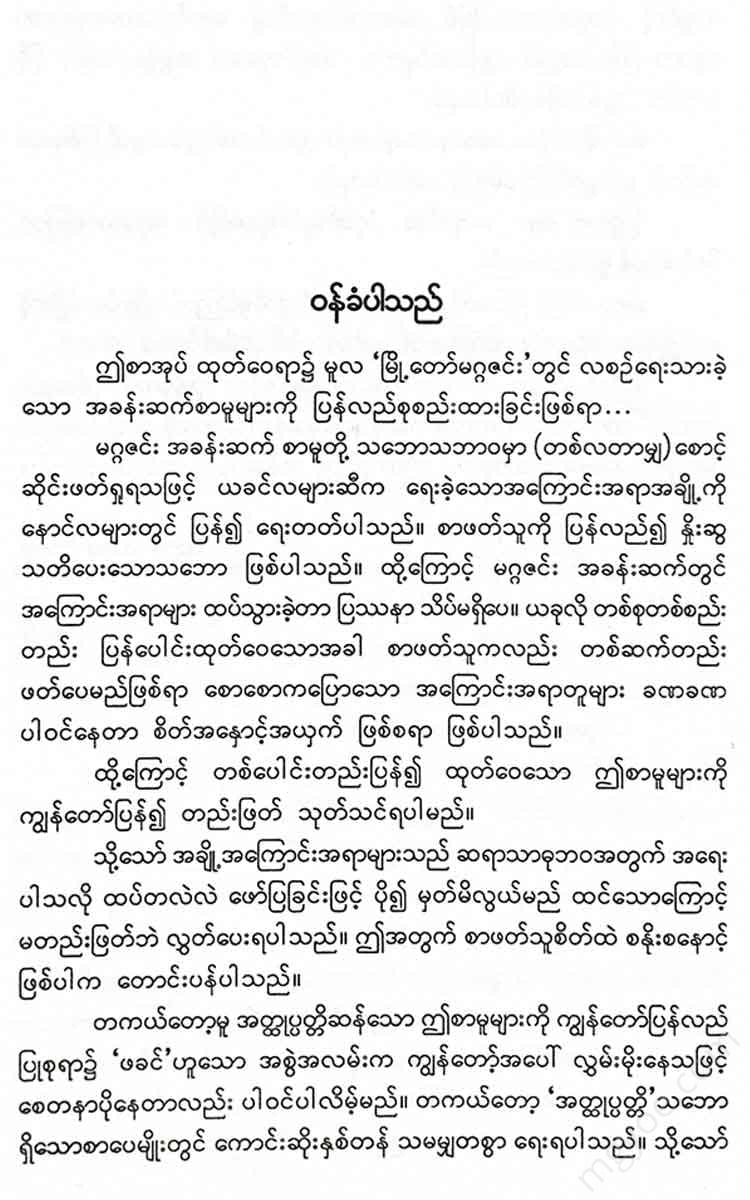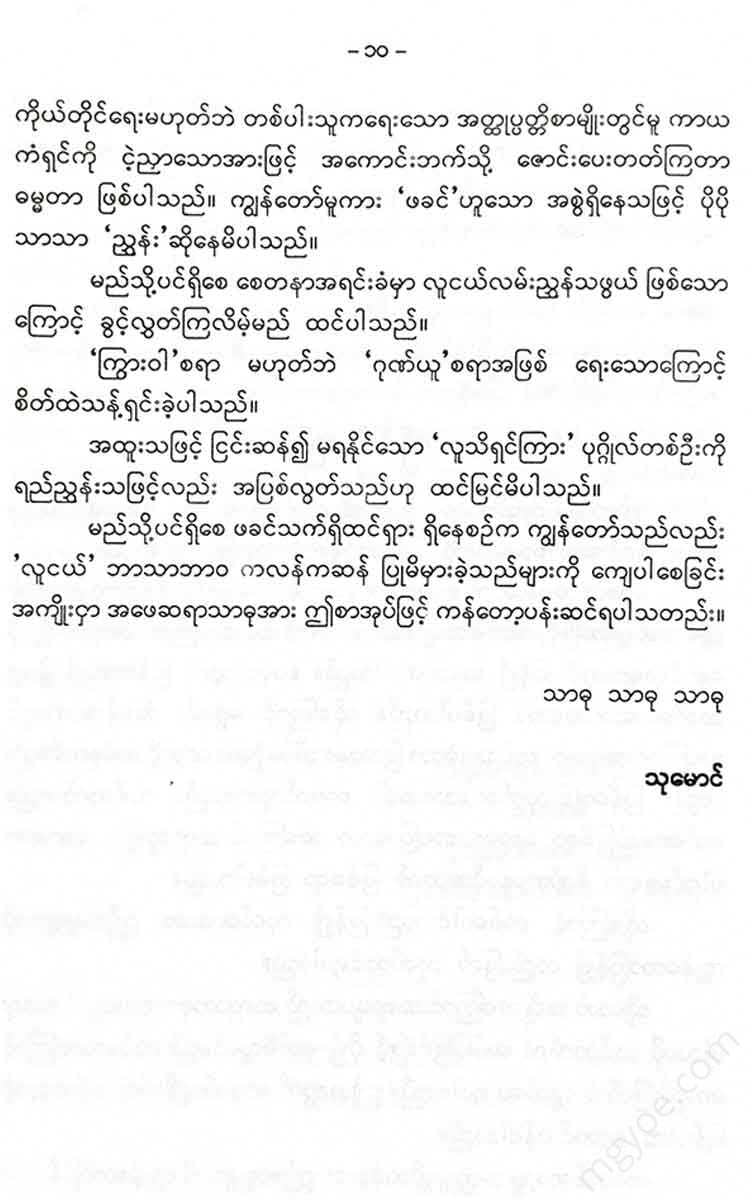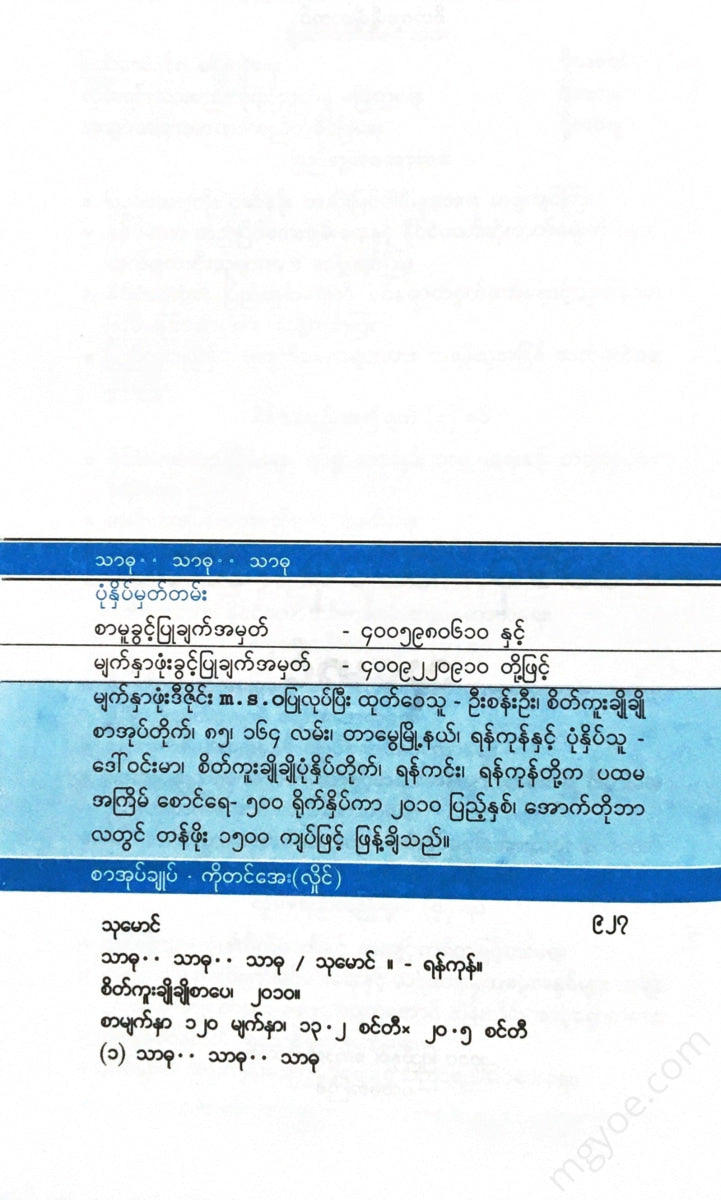စိတ်ကူးချိုချိုစာပေ
Thu Maung - Sadhu Sadhu Sadhu
Thu Maung - Sadhu Sadhu Sadhu
Couldn't load pickup availability
Some of the personality traits of Sadhu (Thakin Pe Than)
I have been writing about my father's life every month, but I had to interrupt this article because some unexpected reasons came up. The "Sadhu Sadhu Sadhu" articles were written in a conversational style to make it easier for the reader, but this article is written in a prose style. Although it is an interim article, the content will help this article. That is, after reading this article, you can go back and take a sample of all the "Sadhu" articles you have written. This article will also help you when you read the next article.
This article was written because of my younger brother Htin Htin. This is how it is. When the donors started doing good deeds after Cyclone Nargis, my father-in-law helped as much as he could, both financially and in person. However, the cyclone also destroyed the film and music industries, and my elder brother has recently become unemployed. My elder brother, who was the main supporter of the family, suddenly lost his spirit. He was sad because he could not donate as much as he wanted. At that moment, one of his fans from Singapore invited him to visit. So he went. He was relieved and used his knowledge to find donations there.
When the younger son heard the news, he called and said that if his older brother came, the Nargis Fund project that he and his sister were currently trying to start for young workers and students abroad would be more successful. I liked his idea, so I called him “Sadhu.” The younger son said, “I am not Sadhu’s grandson. I am “Athar’s grandson.” That expression was unique in the way he valued his grandfather, and I was pleased. In addition, the biography of “Sadhu” that I was writing about his childhood was a “Athar” novel. Even if his words were taken as childish, if we think about it further, we can say that he was simply expressing the true nature of Sadhu, who was kind to the poor and the needy. However, that is not the reason for this article.
The other day, when Po Sok Ky returned from Singapore, he went back to the disaster-stricken areas to donate more with the money he earned. The news was published in the Ain Tan Journal. What is remarkable is that in the photos of the young actors and actresses donating in the rain, the photo of Po Sok Ky is seen by the village grandmother, who is sitting and laughing happily while looking at Po Sok Ky. The caption at the bottom of the photo reads, “Ko Thu Maung is my son, so I am my grandson.” The words that the grandmother said are very similar to the words that the young son said, “Oh my grandson.” It is as if our group of monks is speaking about the nature of nature. Moreover, it is the expression of the audience who loves three generations. I am proud of that child. Because that word is used in books, literature, It is not the definition of scholars such as Mao Kun, but the words of an ordinary peasant, a poor (currently a refugee) old woman. That saying, “U Thadhu’s grandson, you are my grandson” should not be considered as a statement made specifically for Po Sokwe. It is taken as a statement made in general for the Sadhu family and the Sadhu group. That is why I say that I am proud. Now, this manuscript is the words of the younger son, “Atar-yaw-yaw,” and the words of the old woman, “
"U Thadum Mya" is a combination of the two and expanded.
In the essays I wrote about the “Atharva” of “Sadhu”, I combined my own perspective with the life of my father (the Atharva novel). This essay will be based on personal experiences from my time with my father. In addition to Sadhu’s character and Atharva’s nature, I will also describe my father’s true nature.
To this day, very few people have analyzed Sadhu's literary level and film directing skills. This may be his father's weakness. It may also be that researchers have forgotten. Saya Maung Sein Ni recently wrote in his "Pitauk Pwint Thit Literary Magazine"
I will reveal the example. It may be that my academic standards are not up to the standards set by the public. I have received literary awards, academy awards, national honor awards, etc., but these are honors that are rare. For example, I have never received any awards (such as national honors or political awards). In other words, although they are highly regarded by ordinary citizens, they are not very special honors for scholars and scholars. In the sense of Dharma, they are just “anatha”. The feelings of the recipient regarding such awards are important. For example
I was nearby when the relevant people came to see my father to present him with the “National Merit Award”. My father was hard of hearing, so I had to translate for him. When those people arrived, my father did not hear what they were talking about. As they were taking a photo, a flash of light suddenly appeared...
“Hey guys, I didn’t run away, don’t take pictures,” he said, shouting a little. But he said, “I was only a martyr, I fought against the imperialists with my mouth. If you want to give awards, go to ordinary comrades who really sacrificed their lives for the country.” He had to explain that this was a matter of personal choice. (I want to say something funny. My father was very happy to receive a monthly ration along with the national honor award. Because it included Duyar cigarettes, which he loved very much.) People have that kind of nature. Just as he had been so proud of receiving such an honor, when he looked for the two Academy Awards he had received near his death, one of them was missing. (I still can’t find it.) The other one was lying under his bed, lying on its back among the other things. It wasn’t worth it. My father never kept anything neatly. However, when I was in the eighth grade, he would always find the “Pakka Fountain Pen” that he had won a literary award for. Moreover, when he would go to the street markets where he used to go, the children on the street would shout, “Ha, there’s a monk over there,” and he would laugh until his teeth were showing. It seemed to him that he thought of those children as “little” children when he was young.
By the way, I would like to tell you a little bit about the difference between the two. As I mentioned earlier, a great writer who was a contemporary of my father and a great writer, who was also awarded a national honorary degree, went to my house to meet me. When I saw the departmental car in front of the house, that great man ran out the back door in fear. I witnessed him running into Shwe Kyi Aye Tea Shop on 33rd Street with Mo Kyi Pan Gyi and hiding in the toilet. I am not making fun of the teacher. I am saying that the two adults are different in nature. In any case, that great man is more respected and honored than my father in the literary world.
In the literary world of his time, some people called my father a white longyi. It seems that he had no color. My father did not respond. He simply defined his white longyi as pure. In other words, my father did not participate in the three categories of left and right socialists of that time. My father separated politics and art. In saying this, it was not a position of “art for art’s sake.” He did not shout “for the people.” It was an idea that he wanted to be one with the reader. He did not think about whether that reader was a capitalist, a communist, or a socialist. My father seemed to see “people” only as human beings. He was like the old Burmese who used to smile and greet people he met on the road while walking on his own path. Therefore, Sadhu’s literary works were not personal but general. Because they were general, they lasted a long time. The village woman who greeted Po Sok Kyaw, mentioned earlier, testifies to this. To be honest, there is a difference between praising a wise man and remembering that old woman. I don’t want to compare this to the way U Bo Hlaing, the secretary of the king, said to his horseman, “Don’t praise me in the future, you bastard,” and then shut up in shame. When the Golden Crown and the Golden Crown were in vogue, I would like to compare it to the way the minister of the province broke away and composed simple songs for farmers, fishermen, and palm grove workers to recite. I think that the difference in the views of U Bo Hlaing, the secretary of the king, and the minister of the province. I have discussed this issue with my father.
In fact, although the writing style of Do Do Do Do Do is considered to be a masterpiece, my father once admitted that it has the spirit of the great writer "Min Swe" who wrote the novel "Sword". However......
“My father’s favorite writers are Min Thu Wan and Zaw Gyi. The great writers’ honest and pure nature is evident in their writings and poems, my son. However, my father’s spirit is not
"I can't fix what's happening." I remember my father's love for Master Min Thuwan. Whenever we were kids, my father would spread a big mat in the back of the car and take Master Min Thuwan's children in.
As I mentioned earlier, there is evidence that the left and right writers called my father “a white-collared writer.” One day, a leftist writer who criticized my father for being a wealthy writer who drives a car came with my father in his car. When he saw the street vendors and beggars, the leftist writer commented that they were very pitiful. When he reached a hill, the rickshaw that was being pulled uphill in front of my father’s car fell backwards and came towards my father’s car, so he had to quickly brake. At that time, the people’s party writer I mentioned earlier said…
“Ha... you son of a bitch, I’ll beat you up,” he scolded the lanky lanky. (See the book Sadhuluwawata about this.)
Once, a novelist who wrote, “Prostitutes began when the rich and powerful began to put their maids at their feet” went to a tavern drunk and asked, “Isn’t there a new aunt?”
I told my father about it, and he wrote a poem called "New Boy".
If you think I'm praising my father, I can't help it. To be honest, my two favorite writers are Sayar Thaw Ta Swe and Sayar Thadhu. That's why I wrote an article in "Thay" magazine with the title "The Two Thads Are the Same". Check it out. Thadhu and Thaw Ta Swe in Thay magazine
